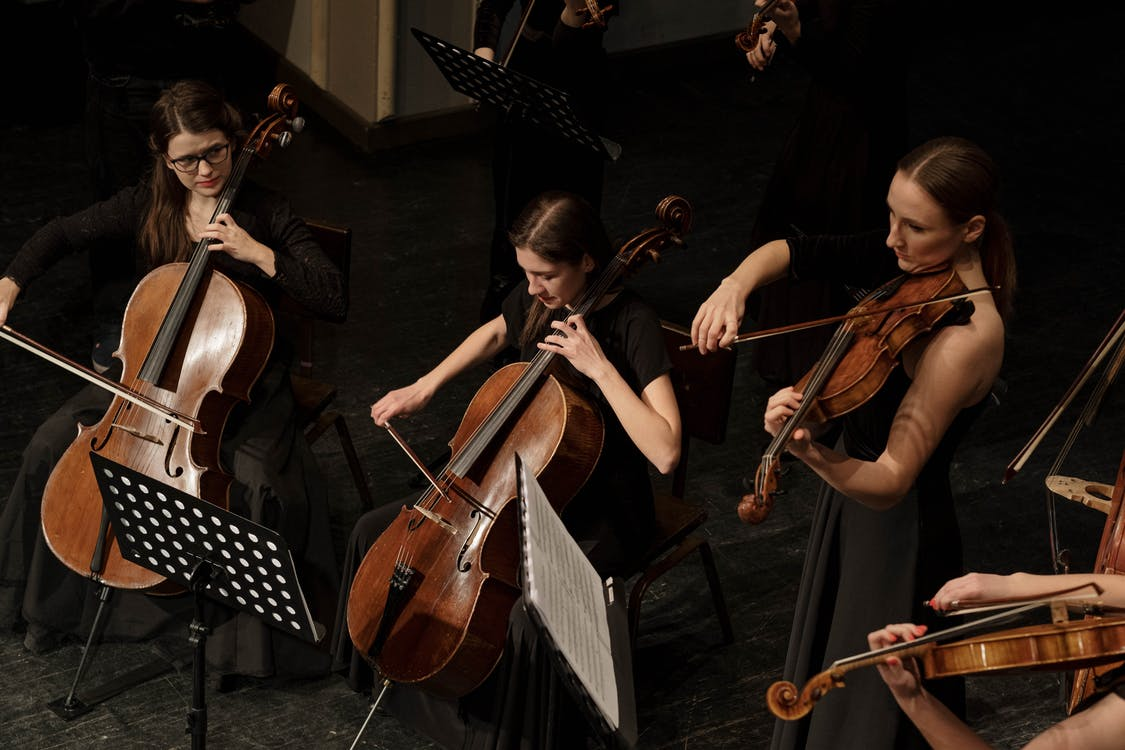Tips for Playing an Instrument in an Orchestra
Playing an Instrument in an Orchestra
Playing a musical instrument requires both artistic and technical capabilities. It takes a long time to master this skill, but the rewards are worth the while. While playing musical instruments solo can be an amazing way to soothe yourself, it gets even more serene when you add more instruments and artists into the mix.
It teaches the participants the power of cohesive musical rhythm and offers the audience the most valued experience. But there are many challenges that a musician may face when playing in an orchestra. Here are some tips from music teachers of Abu Dhabi to help students give their best performance and work in coherence with other players.
1. Understand Your Part
To play as a team with your orchestra members, you need to understand what you are contributing to it. An easy way to do so is by recording each performance and analyzing how your instrument fits with the rest of the music. As the tempo shifts, notice where your rhythm should change with it. After listening to a couple of recordings, practice along with it, and you will be able to give a better performance in the future. To improve further, take the help of a music institute in Abu Dhabi and start polishing your skills today!
2. Take Your Time
At the beginning of a music lesson, every student feels overwhelmed. This is because they think the flow of the rhythm is too fast, and they have to speed up themselves to play along. Contrary to this idea, you have enough time to feel each rhythm deeply and slowly catch up with the rest of the players. Just take a deep breath and play at your own pace until it all comes together.

3. Employ Your Senses
Once you master the skill of playing a musical instrument, you can play it with your eyes closed. At that point, you only rely on your sense of hearing to guide you. But for a beginner, it is essential to use the sense of sight and touch. Using your vision, you can keep a close eye on how the leader’s bow is moving. Also, looking at the conductor is essential, or you will get confused quickly. Whichever instrument you are playing, let your sense of touch take control and enjoy the music’s dynamic through it.
4. Make Notes
If you go to a musician’s institute for the first time, spend a few music lessons just taking notes. At this stage, your interference might disrupt the performance of an orchestra, so you should sit back and soak in the rhythms before it’s time to play along.
5. Balance the Others
When another player in your orchestra has a solo line, you should adjust your performance accordingly. Keep your tone to a minimum so their line can be heard clearly. The softer each player plays, the more amazing the overall dynamic musical rhythm will be. You can learn more about balance by attending music certificate courses and becoming an amazing orchestra player with practice.
6. Be Mindful
Another common mistake beginner musicians make is to play without keeping other orchestra players’ roles in mind. They get lost in the rhythm of their music and forget to notice whether it compliment the rest of the tone or not. Always make sure that you and other players work coherently and produce a uniform beat.

7. Focus on Your Own Mistakes
When music school students are practicing, there are bound to be many mistakes in the beginning. But if you point out your teammates’ errors to them, it will affect their confidence negatively. Stay focused on your performance and let others realize their mistakes independently. Eventually, you will all improve as a team, and the sound will also start to come together.
8. Follow the Conductor
If you are having a hard time playing with the rest of the players, you should remain focused on the conductor’s directions. You will be less likely to break a rhythm, and your teammates will find it easy to join along.
9. All Players are Essential
The players at the back of the orchestra are just as important as those in the front. Some may have to be more precise with their musical instruments, but the sound cannot be perfect unless all players do their part justifiably.
About the Author
This blog’s author is a music teacher at The Young Musician Music Institute (TYMMI). He has taught hundreds of kids and adults the skill of playing the guitar, violin, piano, and many other musical instruments.
To learn more tips about orchestra playing, visit The Young Musician Music Institute (TYMMI) at Al Raha Mall & Al Wahda Mall, Abu Dhabi. The music diploma courses at this school can bring out your musical talent and help you develop the skills you always wished to have! Click hereto get in touch now!
